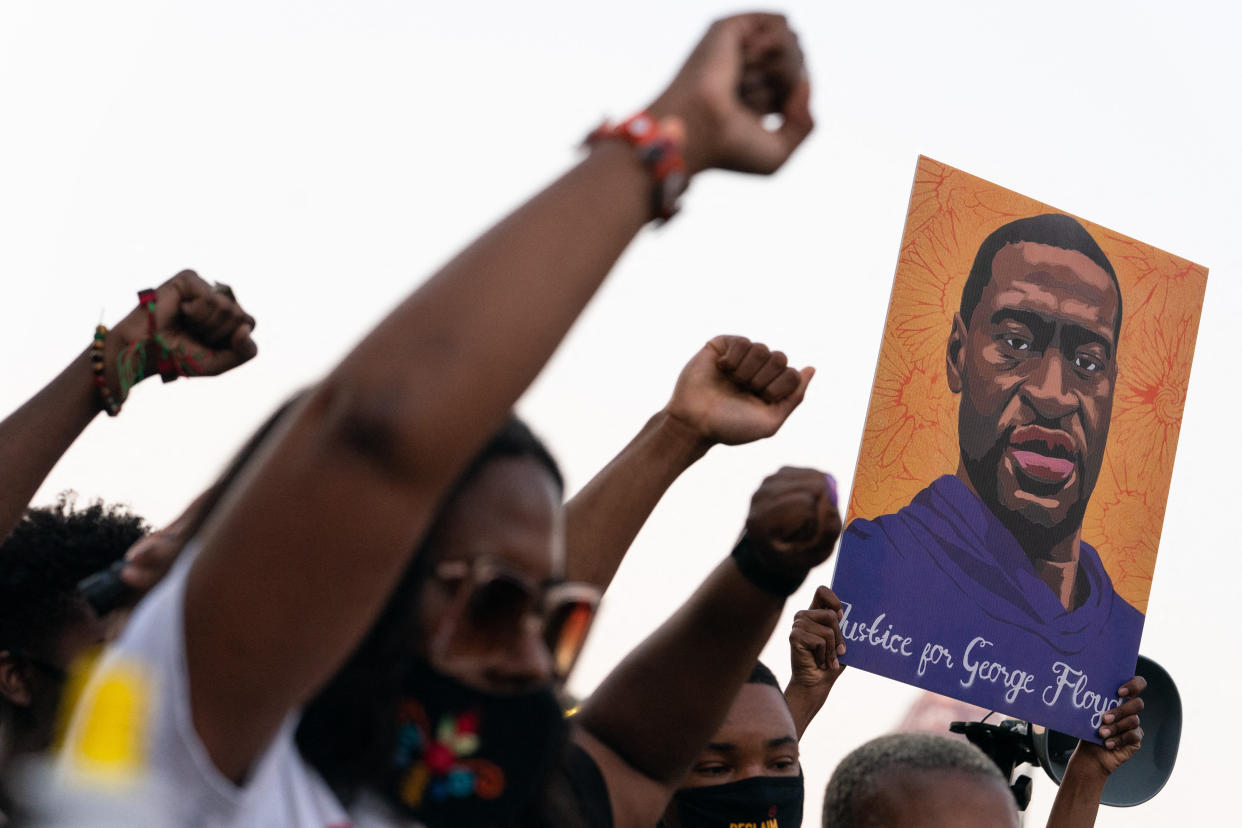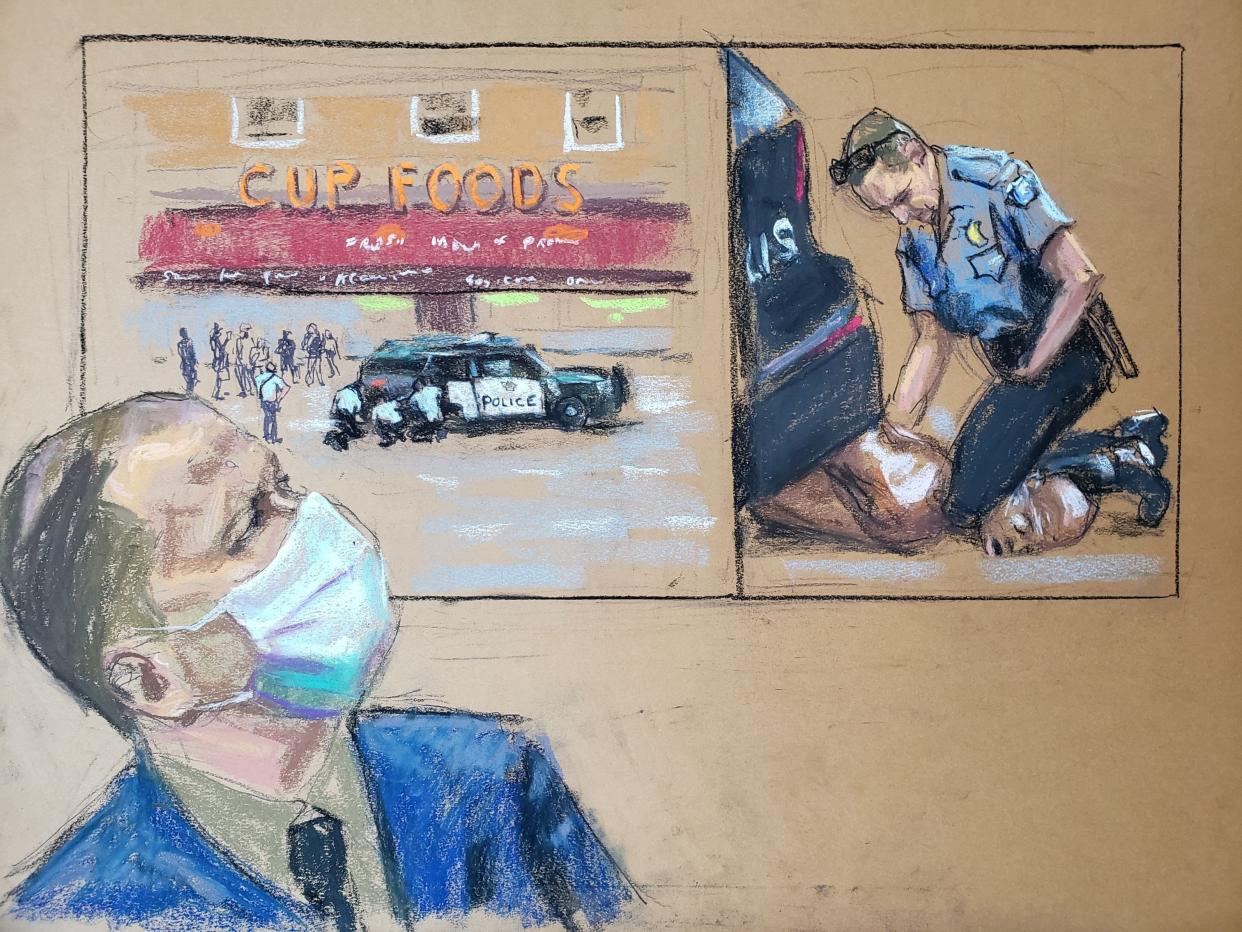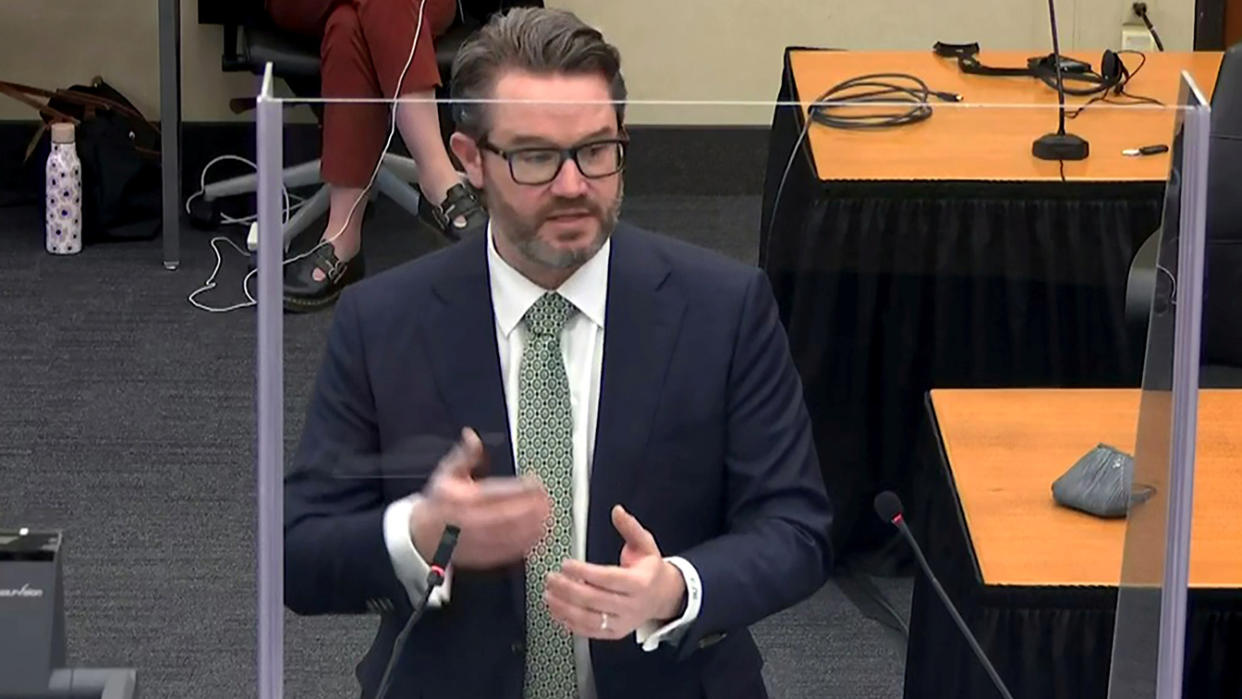What to expect at Derek Chauvin's sentencing for the murder of George Floyd
Former Minneapolis Police Officer Derek Chauvin will learn his prison sentence on Friday for the murder of George Floyd, a killing that sparked international protests over the treatment of Black Americans by law enforcement.
Hennepin County Judge Peter Cahill, who presided over Chauvin’s murder trial, will hand down the sentence two months after a jury reached guilty verdicts on charges of second-degree unintentional murder, third-degree murder and second-degree manslaughter in Floyd’s May 25, 2020, death.
Video taken by a bystander of Chauvin kneeling on Floyd’s neck — depriving Floyd of oxygen — played a key role in helping the jury decide to convict the former officer.
The most serious offense, second-degree murder, carries a penalty of up to 40 years in prison, according to Minnesota law. The other charges, third-degree murder and second-degree manslaughter, can result in imprisonment of up to 25 years and 10 years, respectively. Per Minnesota sentencing guidelines, Chauvin’s sentence on each count will likely be measured concurrently.

The presumptive, or average, sentence for a first-time offender — which Chauvin is in this case — convicted of second-degree murder, according to the guidelines, is 12 and a half years. Cahill has the discretion to determine how much jail time Chauvin will receive, legal experts told Yahoo News, and the sentence will likely fall somewhere between the presumptive sentence and the legal maximum.
Whether the sentence Cahill hands down will satisfy observers and supporters of Floyd and his family, particularly those who want to see Chauvin receive a lengthy term, remains to be seen. Civil rights attorney Benjamin Crump, who represented Floyd’s family in a civil suit, plans to hold a news conference, along with members of the family, after the sentencing.
“Severe is going to be in the eye of the beholder,” Eric Anderson, a trial attorney with the Early Sullivan law firm in California and a former prosecutor who closely followed Chauvin’s trial, told Yahoo News. “I don’t think he’s going to get the maximum, but I think there is a good chance that he will get above 12 years.”

Anderson cited the aggravating factors in the case, which are essentially elements of the crime that warrant a severe sentence, against Chauvin. After the verdict, the state filed a memo on April 30 requesting an aggravated sentence. Among the factors listed in the memo was that Chauvin treated Floyd “with particular cruelty” by pressing his knee into Floyd’s neck for nine minutes and 29 seconds, despite Floyd’s pleas that he could not breathe.
Another factor, according to the memo, was that Chauvin “abused his position of authority” as a police officer.
“He was in a position of authority,” Anderson said. “He was dealing with a victim who was particularly vulnerable, because at the time Mr. Floyd is handcuffed and he’s on the ground, surrounded by cops, he’s in their custody and care.”

Chauvin’s attorney, Eric Nelson, pushed back against the state’s request, arguing that Floyd was not particularly vulnerable and was “well over six feet tall, muscular, and weighed in excess of two hundred pounds,” according to Nelson’s memo, which echoed arguments he used at trial.
Nelson’s arguments failed to sway Cahill, who ruled in a May 11 court order that Chauvin did abuse his authority, treat Floyd with cruelty and committed the crime in the presence of children (two bystanders who witnessed Floyd’s death were under the age of 18).
“Most of us are assuming that Chauvin is not going to get the presumptive status of 12 and a half years,” David Schultz, a visiting professor at the University of Minnesota Law School and professor at Hamline University, told Yahoo News. “I think it’s going to be closer to 40.”

Earlier this month, Nelson asked the court for a probationary sentence, limiting Chauvin’s incarceration to time served (Chauvin has been in prison since the verdict was reached on April 20), according to court documents. Such an outcome is highly unlikely, Schultz said, although Cahill could give Chauvin credit for the time he’s already served.
“The odds of probation I would say are practically nil,” Schultz said, due to the fact that Cahill found that the facts support the aggravating factors against Chauvin.
Before Chauvin is sentenced, he will have the opportunity to address the court. It’s unknown if he’ll decide to speak, but whatever he says probably won’t have any bearing on Cahill’s decision, Schultz said.
“I’m not sure there’s much that Chauvin can say at this point that’s going to change the outcome,” Schultz said.
Thumbnail credit: Minnesota Department of Corrections via AP
____
Read more from Yahoo News:
